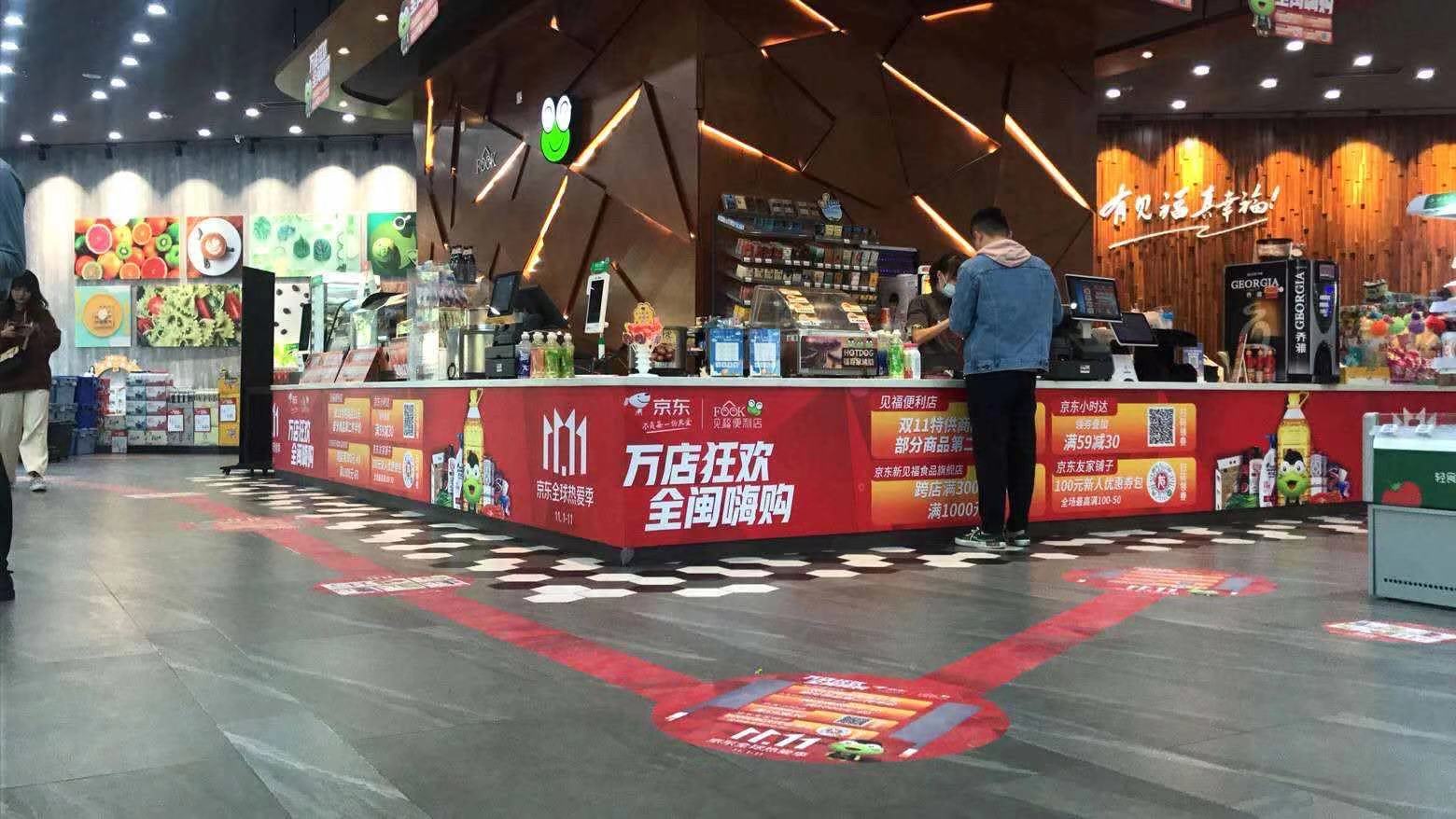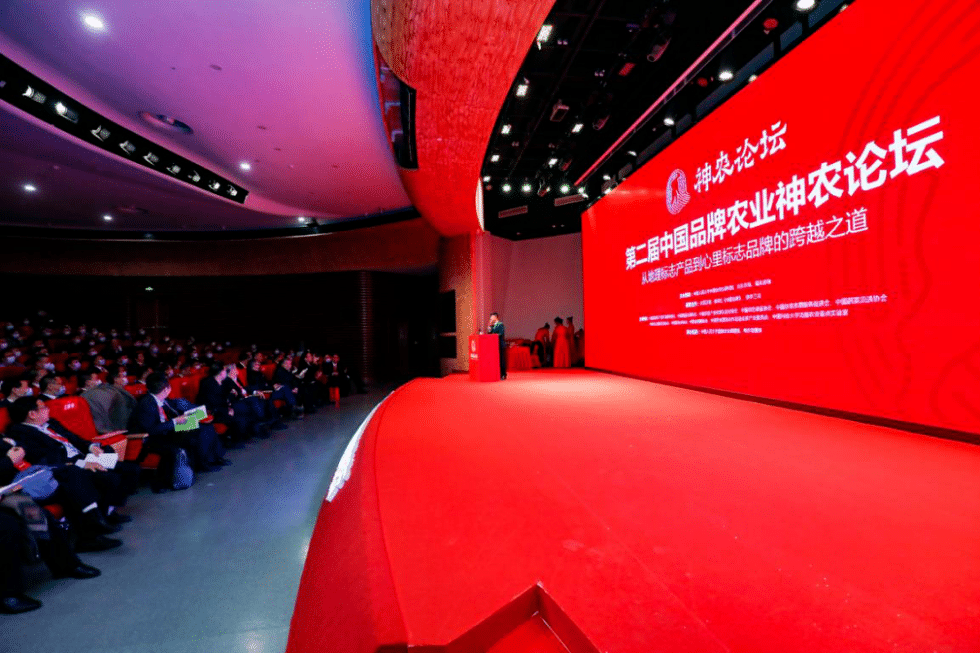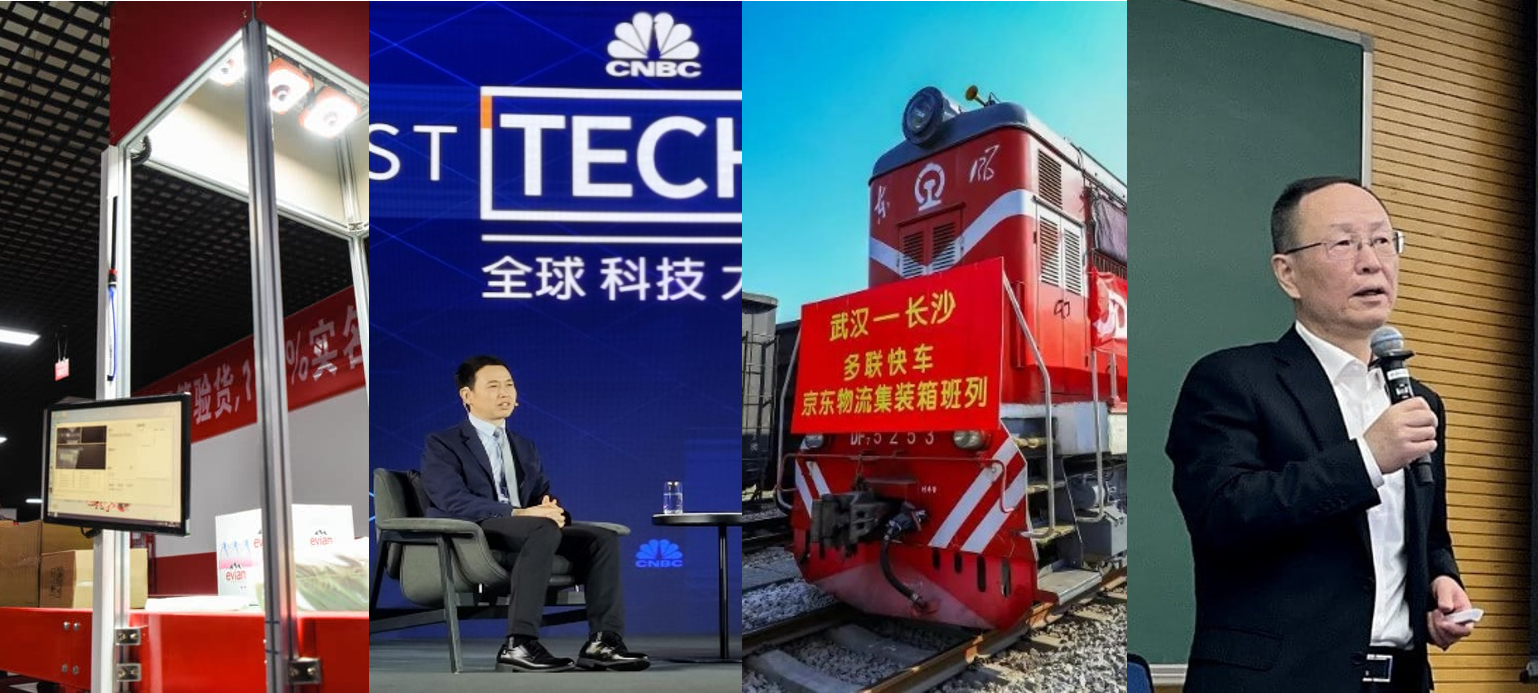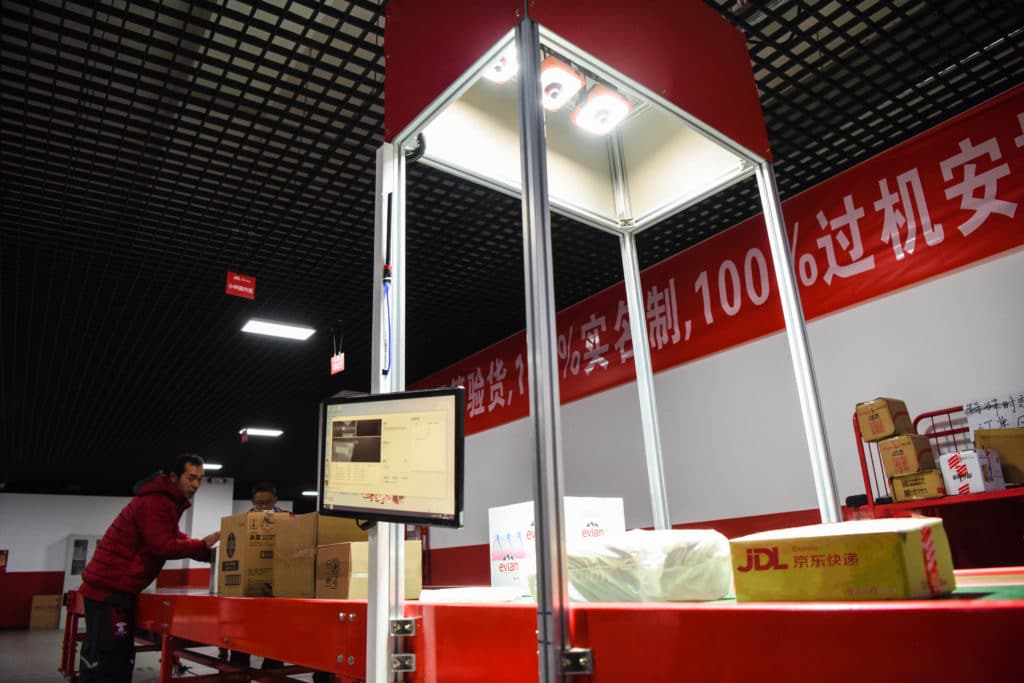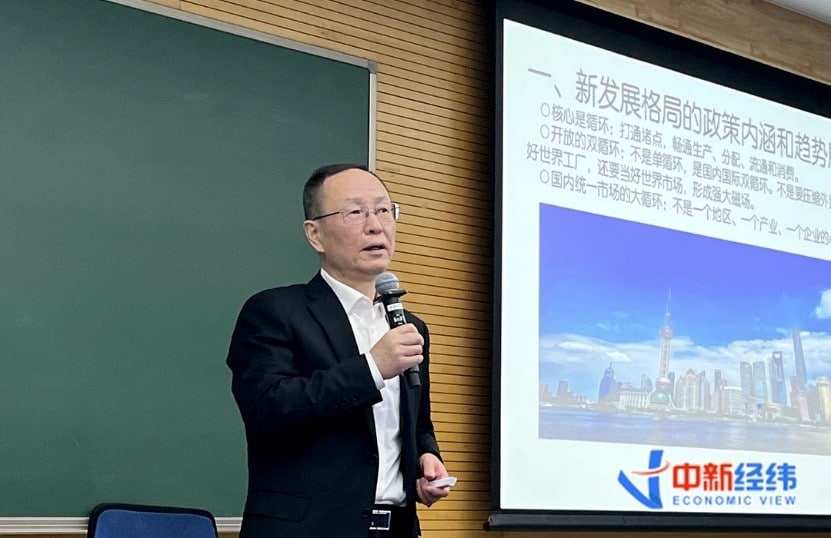by Ling Cao
Ahead of the fourth JD Discovery (JDD) conference to be held next week, JD and Tsinghua University have jointly launched a report explaining three trends for the future of supply chain development in China: digitalization and intelligence, online-offline integration, and the strengthening of industry infrastructure.
During the upcoming JDD conference, which will gather industry experts from all areas of technology to discuss the most pertinent issues and developments in the industry, JD will unveil a new description of supply chain that is deeply in line with the trends outlined in the report.

JD Discovery conference online website
For the company’s future development, JD will leverage the digitalized and intelligent technology based on supply chain to connect and optimize processes covering production, circulation and service, in order to reduce cost and improve efficiency within the industries.
Nearly four years have passed since Richard Liu, Chairman and CEO of JD.com, emphasized technology during JD’s annual meeting in February 2017. “This is the time to put aside all of our achievements in the past, though the existing business model will support us to keep much higher growth rate compared with industry average in the next five to seven years— while in the next ten years, the improvement pace and the impact of technology to human beings will exceed the past 100 years,” Liu said during the meeting. “In the next 12 years, JD needs to leverage technology to break and rebuild business models.”

JD.com chairman and CEO Richard Liu speaks at 2017 JD annual meeting
Liu’s pointed direction has led JD’s innovation and operation. As a technology and service company with supply chain at its core, JD continues to expand its boundaries. Data from the latest third-quarter earnings showed that technology innovation is driving operation efficiency improvements. JD’s inventory turnover days shortened to 34.3 days, hitting the fastest turnover rate since its IPO. And net service revenues were RMB 22.8 billion yuan (US $3.4 billion), an increase of 42.7% from the third quarter of 2019.
The need to widen boundaries
Liu has come up with a ten-section operation theory. He divided the value chain for retail and consumer goods industries into ten sections, covering creativity, design, R&D, manufacturing, pricing, marketing, transaction, warehousing, delivery and post-sales. The first five sections belonged to brand owners; the last five belonged to retailers. In the past ten years, JD focused on the last five sections, originally starting from transaction, and gradually stretching to warehousing, delivery, post-sales and marketing.
As a result, JD’s nationwide logistics network has helped reduce the social logistics cost and helped JD to form foundation of supply chain infrastructure. JD’s logistics network has also proved its value amid the pandemic, playing a key role in ensuring uninterrupted delivery of essential and medical supplies in China. More importantly, JD has opened core supply chain capabilities to external partners, helping the industry to optimize cost, efficiency and experience.

JD Logistics trucks
Additionally, JD aims to stretch the supply chain from merchandise to other industries, including finance, healthcare and auto aftermarket— and further accessing the upstream sections from Liu’s ten-section theory: creativity, design, R&D, manufacturing and pricing.
Stretching to more industries
Since its establishment, JD has been building its strength in supply chain and technology, producing four unicorns to date, namely JD Logistics, JD Digits, JD Health and JD Industrial Technology.
As one of China’s leading online healthcare platforms rooted in JD.com, JD Health defines its strategy as medical services as the starting point and supply chain at the core, building a digital-driven healthcare management platform covering users’ full life circle and all scenarios.
Lijun Xin, JD Health CEO explained, “In the past, the business model of JD Health was more like a pharmaceutical e-commerce business, but if we can’t guide and manage the whole life cycle of users, we can’t become a real healthcare-service company.”
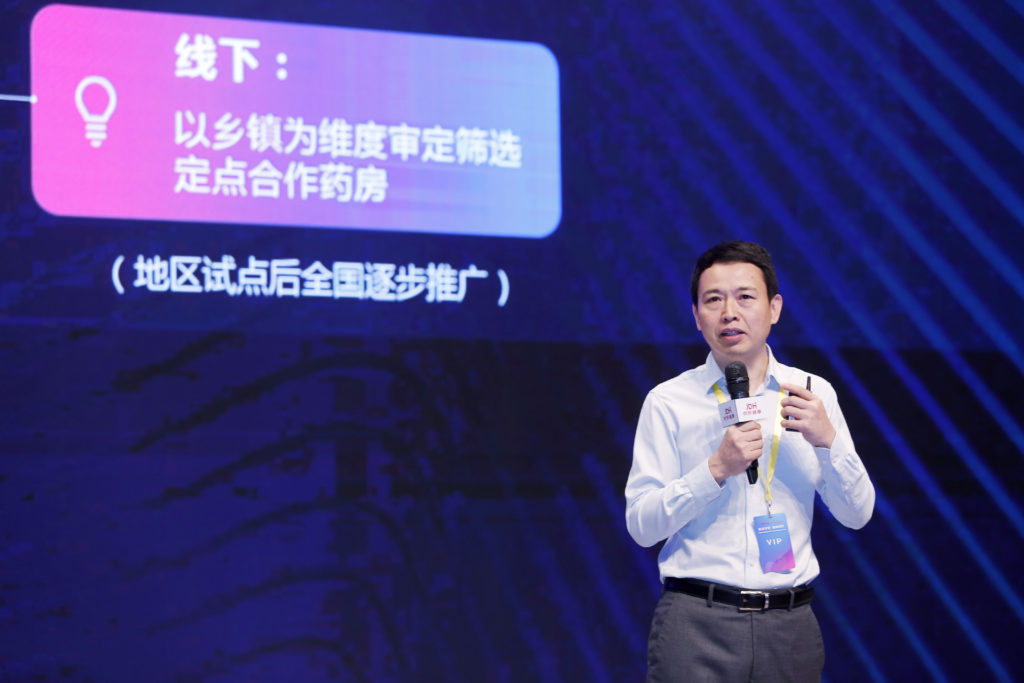
JD Health CEO Lijun Xin speaks at an offline event
Led by Xin, JD Health will open up the whole industry chain to integrate medical resources of all parties, and provide users with products and services that run through the whole life cycle and cover all health scenarios.
Xin shared, “For example, JD’s family doctors will know when any of your health indicators turn abnormal, even when you might not be aware, and they will contact you in a timely fashion to take action. When you use JD’s online platform, health consultations, medicines and other healthcare related services will be covered.”
Based on supply chain, JD Health has launched an omnichannel program for customers. Through nationwide collaboration with more than 200,000 offline pharmacies in over 200 cities so far, JD offers a 30-minute fast medicine delivery service for its online users. During the latest Singles Day Grand Promotion, sales from the program increased 21 times YoY and delivery services continued to improve, with one customer even receiving medicine in less than 10 minutes.
Talents enabling sustainable growth
Ahead of the Chinese spring festival earlier this year, Richard Liu sent an open letter to JD employees, with one of the key messages: “Talent is always the core among everything.”
At JD, the “Big Boss” is a key program to make the whole JD.com organization more agile, a characteristic that is often a key factor to decide whether a company can last long. The program empowers business divisions to make their own decisions, demonstrating greater trust in leaders across the company. JD aims to put decision-making power in the hands of those closest to the customer.
“The program is also premised on the idea that each business unit is a ’Lego building block’ that together with other units can more easily adapt, shifting and stacking to meet complex and ever-changing needs,” explained Rui Yu, CHO of JD.com.
JD Digits is also concentrating heavily on talent building. Leveraging digital technology, JD Digits is an example of how JD has extended its capabilities to help financial institutions, governments and other public institutions transform into a more digitalized business model. Within JDD, employees define themselves as the “chief growth officer (CGO)”, who each aim to help clients grow their business.
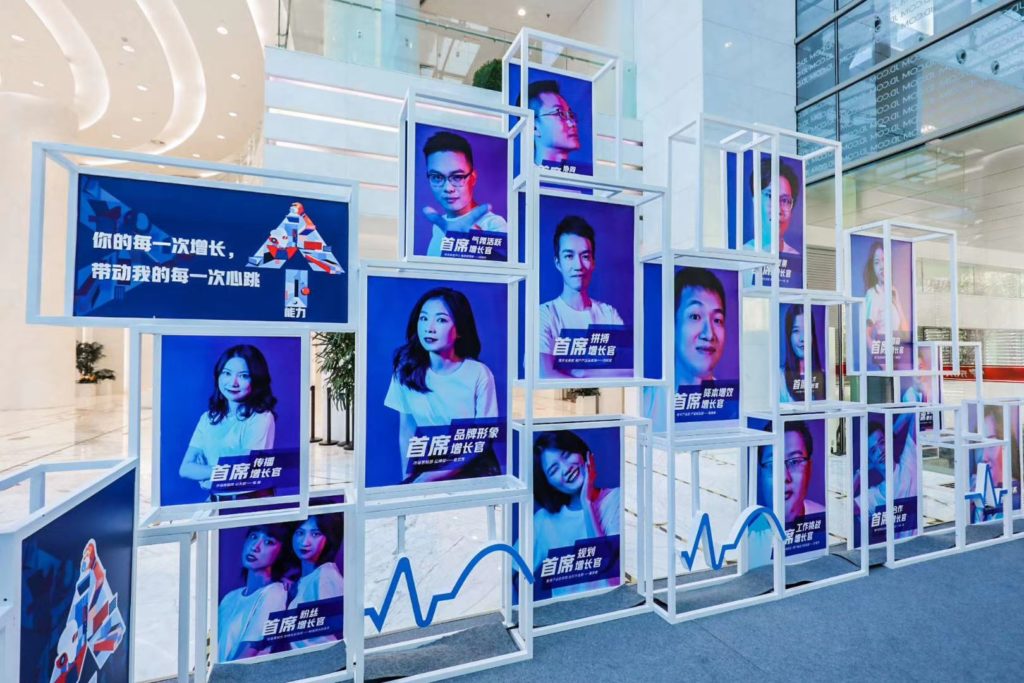
JD Digits employees portraits exhibition at JD headquarters
Ling Xu, vice president of JD Digits said: “It represents a notion. Growth is the target and we are all committed to helping clients achieve the target. Only when clients reach their goals, can we share the benefits. It’s a client-centered philosophy, to encourage the employees to put clients first.”
One of JDD’s employee said, “Previously, one client needed to communicate with several departments within JD and JDD for discussing different business programs, while now they can just contact JDD as a central communication point. In my role I will help them with internal communications, which makes the whole process more efficient.”
Shengqiang Chen, CEO of JD Digits shared his view of how to approach work: “First, you need to do the right thing, and second, you need to keep learning. Last, you need to keep curiosity to this world.” Chen’s philosophy has enabled a strong team which supports JDD’s long-term growth together.
Learn from the Titans
Global leading companies share similar business strategies. See Amazon, Apple, Alphabet and Microsoft as examples, for whom market value has reached over 1 trillion US dollars, respectively, with stable growth rate. They all share multiple business models, stretching their access to transaction, service and technology, which is in line with JD’s mission: Powered by technology for a more productive and sustainable world.
As CEO Richard Liu shared, “You have to maintain unique advantages to make the company last for 100 years— it’s not to seek profits from upstream, but to provide value by optimizing cost and efficiency.”
JD’s efforts in the area of digitalized and intelligent technology will guide the direction for the company’s future, which will need higher technology abilities while creating more value for the society.
(ling.cao@jd.com)

